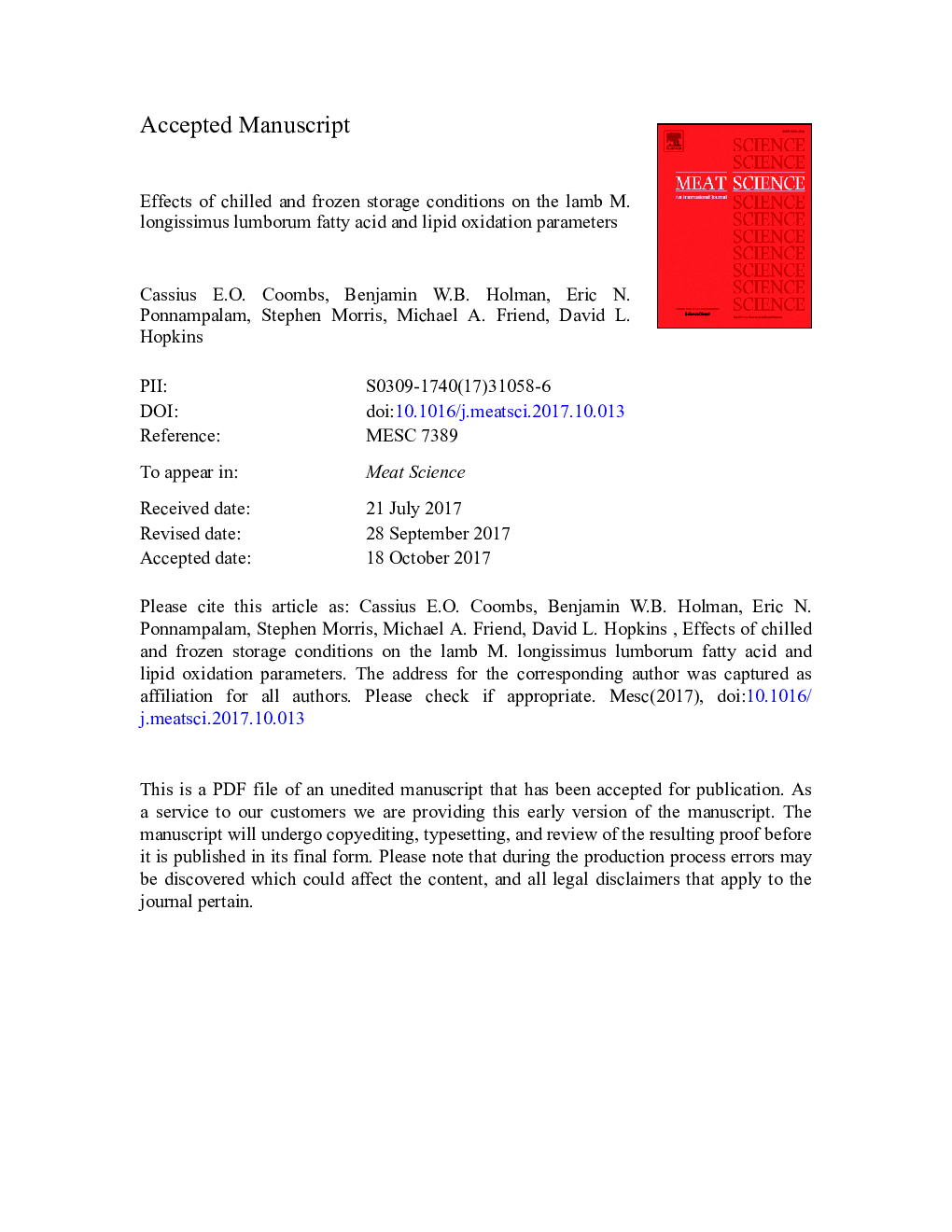| Article ID | Journal | Published Year | Pages | File Type |
|---|---|---|---|---|
| 8503253 | Meat Science | 2018 | 30 Pages |
Abstract
This study investigated the effects of chilled and frozen storage conditions on the fatty acid profile and lipid oxidation in lamb M. longissimus lumborum (LL). Muscle LL (n = 360) were randomly selected at 24 h post-mortem from a commercial Australian abattoir and maintained chilled for five periods (0, 2, 4, 6 and 8 weeks) followed by frozen for six periods (0, 4, 8, 12, 24 and 52 weeks) at â 12 °C or â 18 °C. Samples were analysed for fatty acid profile and lipid oxidative parameters (TBARS, oxidation-reduction potential and peroxidase activity). Health-claimable polyunsaturated fatty acids (EPA and DHA) were unaffected by neither storage period nor temperature. TBARS levels did not exceed rancidity thresholds recommended in the literature, with these and other lipid peroxidation parameters showing broad increases in concentration with more 'long-term' chilled and frozen storage periods. Combined, the results suggest nutritional and eating quality were maintained across the various chilled and frozen storage conditions applied in this study.
Related Topics
Life Sciences
Agricultural and Biological Sciences
Food Science
Authors
Cassius E.O. Coombs, Benjamin W.B. Holman, Eric N. Ponnampalam, Stephen Morris, Michael A. Friend, David L. Hopkins,
